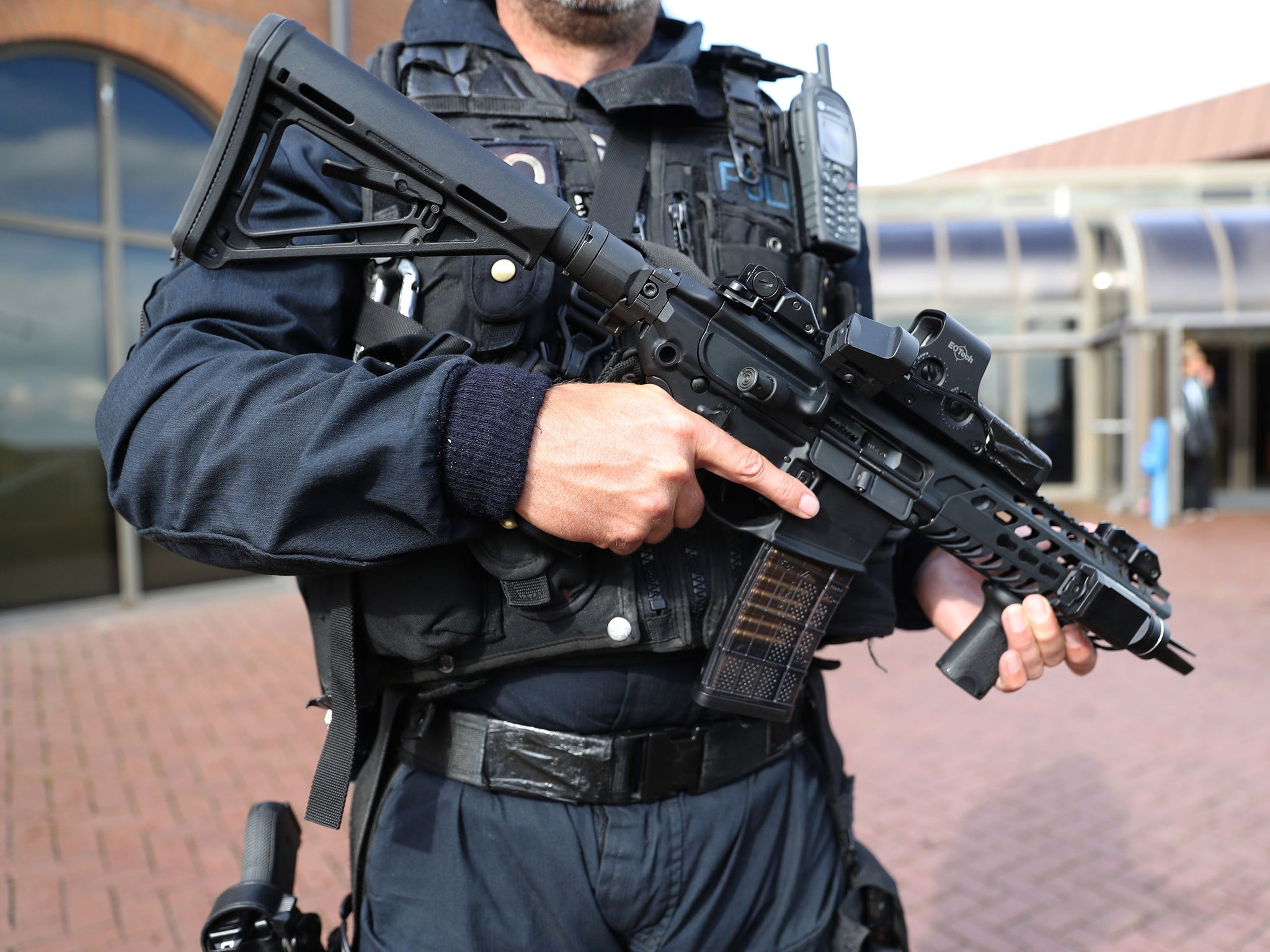Neo-Nazi accused of terror offences was Ukip member and ‘Nigel Farage fan’
Dean Morrice, a former British Army driver, said he left Ukip before the period when he stands accused of terror offences

A neo-Nazi accused of terror and explosives offences has said he was first drawn into “politics” by Nigel Farage.
Dean Morrice has been charged with eight terror offences and two counts of possessing explosive substances that were found at his home near Bristol.
Prosecutors accuse the 34-year-old of creating parts for a 3D-printed gun and running a social media channel that encouraged far-right terror attacks.
Giving evidence at his trial on Wednesday, the former British Army driver denied the offences but said: “I think it’s fair to say I have fascist and neo-Nazi views.”
Mr Morrice told Kingston Crown Court he enjoyed dressing up as a “right-wing fascist” in outfits including a tactical vest, beret, and skull mask, but described the activity as “LARPing” - a form of live action roleplaying.
The court was shown photos that Mr Morrice had taken of two crossbows, a collection of bolts, a skull mask and the tactical vest with a badge reading “ban Islam”.
The defendant broke down in tears several times while being questioned, and said he now feels “very ashamed” of his “disgusting” conduct.
Mr Morrice, who had left the Army by the age of 18, later worked in different jobs and ran companies fixing gadgets and audio equipment.
He said he developed an “interest in politics” in around 2008 or 2009.
“I was a bit of a fan of Nigel Farage and Ukip,” he added. “After his plane crash [in 2010] I sat up and became a bit more politically aware.”
Mr Morrice said he agreed with most of the views expressed by Ukip at the time, and was a paid member of the party until “a few years ago”.
He told jurors that a Facebook group dedicated to “King Nigel [Farage]” was his first engagement with politics online.

The court heard he met a person through that page who later invited him to a 2018 WhatsApp group for supporters of the far-right UK Yellow Vests.
Following the Christchurch terror attack, where a white supremacist massacred more than 50 Muslim worshippers, the defendant allegedly sent the gunman’s manifesto to the group and directed members to first-person footage.
Jurors were told that he became a member of increasingly extreme chat groups on WhatsApp and the encrypted messaging app Telegram, including one called “Fashfururism”.
In January 2020, Mr Morrice allegedly set up a neo-Nazi Telegram channel that prosecutors said “pumped out neo-Nazi propaganda, which encouraged killing of non-whites and Jewish people, in keeping with the neo-Nazi goal of racial purity and Ayran supremacy”.
Under questioning by his defence barrister, Mr Morrice denied encouraging violence or terrorism, and said he did not believe in “committing acts of violence towards ethnic or religious groups”.
The defendant described himself as an “optics guy” who “wanted people to consider right-wing ideas in a non-violent way”.
“I kind of fell into those circles and got a lot out of it,” he said. “I valued being liked by people in those groups, I could come up with good points and get a proverbial pat on the back.”
The court heard that in police interviews following his arrest in August last year, the defendant described himself as a “civic nationalist”.
He also claimed he was “apolitical” but admitted in court he had not wanted to reveal his true opinions to police because: “I believed that having far-right views was against the law.”
Jurors were told that police officers who searched his home found chemicals that would make 1.3kg of the explosive blank powder and 680g of thermite.
The court was shown an exhange on Telegram between Mr Morrice and a Russian neo-Nazi, where the defendant asked for help translating Russian documents from a channel regarding explosives.
“If you can it would help the brotherhood more than you can know,” the defendant allegedly wrote.
Mr Morrice denied wanting to make explosives, and said he possessed component chemicals for legitimate reasons.
He told the court he did want to make the incendiary compound thermite but only for experiments, and not to harm anyone.
Mr Morrice, who had two 3D printers, is also accused of collecting instructions on making 3D-printed firearms and making gun parts.
The court heard that he had obtained manuals to make homemade firearms, files to print 3D gun parts, explosives instructions and information on data encryption.
Mr Morrice denies two counts of possessing explosive substances without a lawful purpose, one of encouraging terrorism, three of disseminating terrorist publications and four of possessing documents useful to a terrorist. The trial continues.



